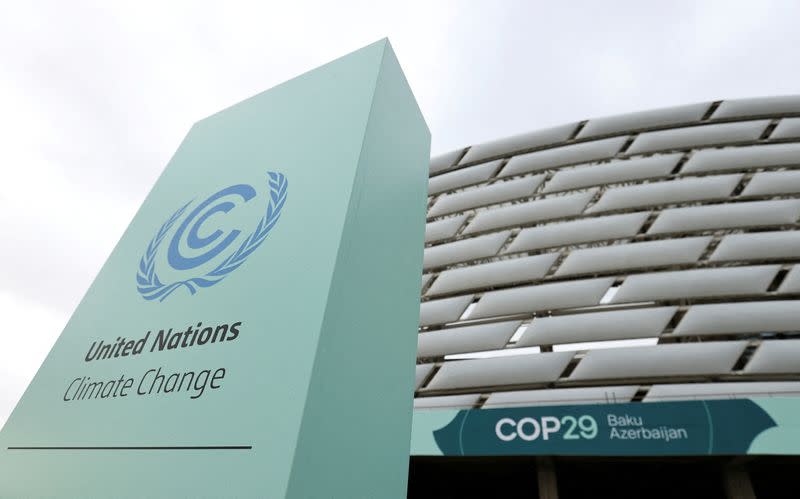Officials in Azerbaijan, hosting the COP29 climate summit, continued on Friday to urge participating countries to bridge their differences and come up with a finance deal.
The COP29 presidency released a new draft of a deal that would have developed nations take the lead in providing $250 billion per year by 2035.
The draft also set a broader goal to raise $1.3 trillion annually by 2035, which would include funding from all public and private sources. But the mood appeared grim as negotiations at the two-week conference entered the final hours.
ALSO SEE: COP29: Over 30 Countries Vow to Fight Methane Waste Emissions
A European negotiator told Reuters the new draft deal was too costly and didn’t do enough to expand the number of countries contributing.
“No one is comfortable with the number, because it’s high and (there is) next to nothing on increasing [the] contributor base,” the negotiator said.
The talks are scheduled to wrap up later on Friday, but could go into overtime if a final deal proves elusive. Past COPs have traditionally run over time.
Clouded by uncertainty over US
World governments represented at the COP29 climate summit in Baku, a city on the Caspian Sea, are tasked with agreeing to a sweeping funding plan to help poorer countries grapple with the worsening impacts of global warming and lower their emissions.
Economists have said developing countries need at least $1 trillion annually by the end of the decade, but wealthy nations have so far been resisting.
Negotiations have been clouded by uncertainty over the role of the United States, the world’s top historic greenhouse gas emitter, ahead of climate sceptic President-elect Donald Trump’s return to the White House.
“We encourage parties to continue to collaborate within and across groups with the aim of proposing bridging proposals that will help us to finalise our work here in Baku,” the COP29 presidency said in a note to delegates on Friday morning.
Division and discontent over the negotiations have already spilled into the open, after a fresh deal draft was released by the presidency on Thursday that offered two vastly different options that left no-one happy.
Although the 10-page document was slimmed to less than half the size of the previous versions issued at the summit, it avoided stating the total funds countries would aim to invest each year, leaving the space marked with an “X”.
It also reflected big divisions over issues such as whether funds should be offered as grants or loans, and the degree to which different types of non-public finance should count towards the final annual goal.
Developing countries plus China, an influential negotiating bloc, have been pushing for $1.3 trillion by 2030 and want at least $500 billion of that from developed nations.
Major contributors like the EU have baulked at such demands, and insist private sector money would be needed to meet a larger goal.
“I hope they find the sweet spot with this next iteration,” said Li Shuo, director of the China Climate Hub at the Asia Society, a veteran observer of COP summits. “Anything other than that may require rescheduling flights.”
UN Secretary-General Antonio Guterres returned to Baku from a G20 meeting in Brazil on Thursday, calling for a major push to get a deal and warning that “failure is not an option”.
- Reuters with additional editing by Jim Pollard
























